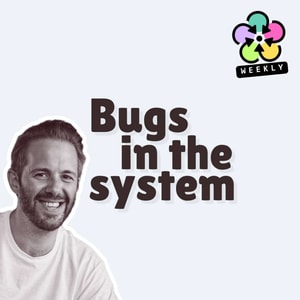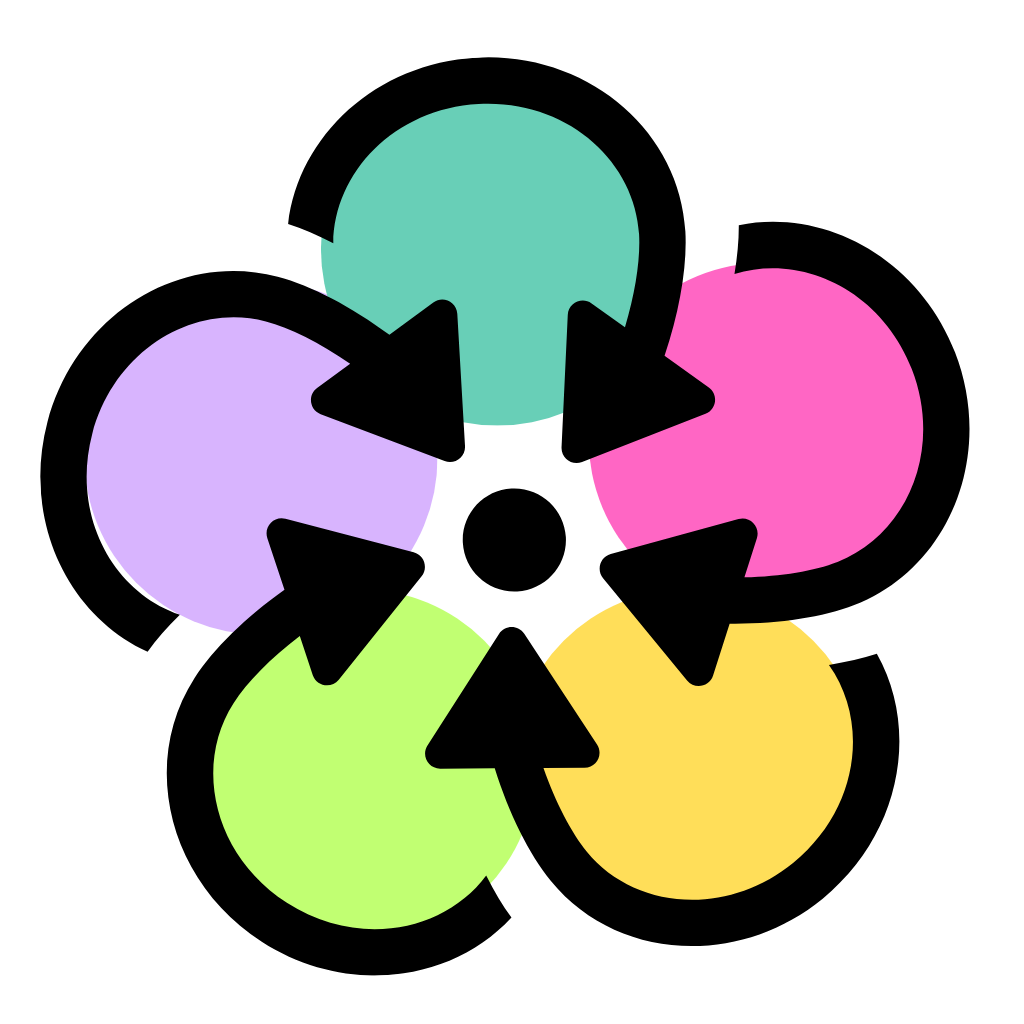Weekly 4 - Bugs in the system

This week, we talk about handling some unexpected bugs in production, how there were some wins out of the situation, the team pulling together during sicknesses and how our inner clock could influence our team's environment.
Transcript
Have you ever accidentally deployed something you shouldn't have and caused chaos? That's what we did last week, but there were some lovely lessons learned and the team were in a better place for it as well. Join me as I talk into the details behind the scenes, along with all the other challenges that was thrown my way last week. So, before we get into the weeds, so to speak, let's do some of those petal scores. Reminder Petals stands for Productivity, Enjoyment, Teamwork, Learning and Serenity. You get an overall average, which is the A in the middle. Productivity 3, enjoyment 2, teamwork 4, learning 4, serenity 2. With an overall average of 3. Let me explain as to why Serenity. So I felt quite productive at the start of the week as I managed to get my Talk submission in for lead dev. We'll see where that goes. But then we identified a bit of an issue in production. I got feedback from one of our users to say, does this look right, Si? I was like, no. It looked like we had prematurely released some early development versions, merged them into the wrong branch, and they've been automatically deployed out to production. So panic ensued a little bit. We managed to roll back so that the users weren't impacted too much, and then we obviously looked at the root cause and how to eliminate them in the future. So obviously Serenity took a bit of a hit. Last week. I was also off sick for a few days. The typical winter viruses had caught up with me. It wiped me out for a few days. So I was definitely not very productive, hence those lower scores. I wasn't enjoying myself. But this is why teamwork went up, because we pulled together to get some stuff done together. I managed to be able to delegate some of those efforts, but also help each other out a little bit more. And because I was off sick, it also gave me a bit more downtime, away from screens and all that. I did a bit more reading and listened to some more audiobooks and I learned a few interesting ideas which we'll talk about later on today. So, all in all, Average had gone up a little bit because we did get some wind out of the incident, but obviously only a little bit because of all the health and curveballs we did not expect. So, on the Petals project itself, as I say, we managed to resolve our production incidents. We rolled back to a working version that we were happy with and our users were much happier afterwards. For me, this was great news to see. You know, that users were actually actively using the app. I was getting live feedback, I was getting mostly useful feedback as well, but it obviously gave me a bit of a distraction from what I wanted to do last week, managing expectations, making sure that we were working on the right stuff, and then obviously putting some better systems in place and documenting them and the process as well. We had some great conversations in our fortnightly dev time on Friday. Great to see some of the features that we've been building and some of the improvements we were making under the hood as well. So go team. Very pleased to see all that stuff going on. And as a nice to have, we also did a little bit of a deep dive into personality types. So we looked into the four color personality type framework, which I'm not going to go into today. We'll save that for another time. But it was quite interesting to see how we all had slightly different color types and how we complement each other without having too many challenges in the process. So onto the final section of the weekly let's talk about Learning. I was listening to an audiobook version of the Inner Clock by Lynn Pupils. This is quite an interesting concept as it talks about the science behind our natural biological body clocks, how there's a little part of our brain, apparently the size of a grate of rice, that controls our body clocks and brains that is attuned to the world and environment around us. There's a lot of good science behind this, which I'm not going to give it the justice again, but it did get me thinking a little bit more as they started talking about night owls and early birds, how everyone has their own sort of clock and preferences. You know, do you work with night owls or early birds? Which one are you yourself and how do you work with your team members with all the differences as well? Is it a problem? Is it actually a good thing? Can you use it to your advantage or do you need to put more systems and processes in place to complement each other a bit more? It was a really interesting book anyway and I like the idea, the fact that we're aligned with our body clocks to the environments around us. We obviously create environments within the working place. So again, are we creating the right environment for our teams fixed around the typical 9 to 5? Or as we go more global and distributed, do we have other systems and ideas in place to align there as well? The other thing it got me thinking about was the natural daily cycle that we all have and how regularly we need to reflect and adjust our habits. The Petals framework originally came out of doing a weekly cycle on a Friday evening just to reflect and think ahead for the next week. But as I evolved this towards teams, it fit better towards the two week life cycles of your typical agile sprint ceremonies. But what if we made this a more regular daily pulse instead? Would it actually give you more to work with? Is it too many overheads to process as a team or individually? Or would it actually give you some more live inflation, which is ultimately the point of petals is the faster feedback of our health. Have a think about it. Have you got the right cadence with your petals health checks? Do you need to think about it being more live, more rapid, or do you need to push out a bit more? Have a conversation with your team to think which one's best. All food for thought I hope, and that will do enough for this week. If you enjoyed the conversation or the topics, please let me know in the comments below. Reach out if you've got some further thoughts around any of the topics we've covered, and keep tuned in for future episodes of the weeklies on our YouTube and Spotify channels. I'll be back next Monday with a brand new weekly, the fifth in this series, and I look forward to it. Have a great week.
This week, we talk about handling some unexpected bugs in production, how there were some wins out of the situation, the team pulling together during sicknesses and how our inner clock could influence our team's environment.
CHAPTERS
00:26 The scores 00:56 A bad start to the week 02:09 Learning during down time 02:35 Managing expectations both ways 03:54 The Inner Clock by Lynne Peeples 06:29 Share your thoughts
PETALS scores
P: 3 (3) E: 2 (2) T: 4 (4) L: 4 (3) S: 2 (2) A: 3 (2.8)
🗣️ Talk submission in after some last minute tweaks. 🐛 Identified some bugs in production after a premature deployment - contacted by end users (still operational but missing style), rolled back and resolved with minimum impact. 🤒 Sickness for 2 days, very little got done personally. 💻 Great dev-time though, going through some app functionality, build pipeline improvements (based on live user issues) and 4 colour personality types (discuss later).
The Inner Clock by Lynne Peeples https://www.blinkist.com/books/the-inner-clock-en?utm_source=bk_ios&utm_medium=bk_referral&utm_campaign=contentItem%253Alibrary&utm_content=672c883659238500105f26cb&referral_token=a0a20b077373
Support PETALS by contributing to their tip jar: https://tips.pinecast.com/jar/petals
Find out more at https://petals.pinecast.co
